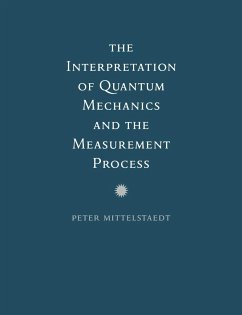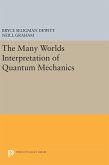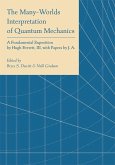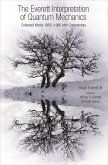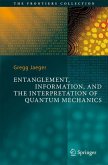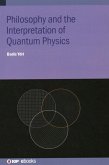Monograph on the philosophy of quantum mechanics.
The main theme of this book is the idea that quantum mechanics is valid not only for microscopic objects but also for the macroscopic apparatus used for quantum mechanical measurements. The author demonstrates the intimate relations that exist between quantum mechanics and its interpretation which are induced by the quantum mechanical measurement process. Consequently, the book is concerned both with the philosophical, metatheoretical problems of interpretations and with the more formal problems of quantum object theory. The consequences of this approach turn out to be partly very promising and partly rather disappointing. On the one hand, it is possible to give a rigorous justification of some important parts of interpretation, such as probability, by means of object theory. On the other hand, the problem of the objectification of measurement results leads to inconsistencies which cannot be resolved in an obvious way. This open problem has far-reaching consequences for the possibility of recognising an objective reality in physics.
Table of content:
1. Introduction; 2. The quantum theory of measurement; 3. The probability interpretation; 4. The problem of objectification; 5. Universality and self-referentiality in quantum mechanics; Appendices; Bibliography; Index.
The main theme of this book is the idea that quantum mechanics is valid not only for microscopic objects but also for the macroscopic apparatus used for quantum mechanical measurements. The author demonstrates the intimate relations that exist between quantum mechanics and its interpretation which are induced by the quantum mechanical measurement process. Consequently, the book is concerned both with the philosophical, metatheoretical problems of interpretations and with the more formal problems of quantum object theory. The consequences of this approach turn out to be partly very promising and partly rather disappointing. On the one hand, it is possible to give a rigorous justification of some important parts of interpretation, such as probability, by means of object theory. On the other hand, the problem of the objectification of measurement results leads to inconsistencies which cannot be resolved in an obvious way. This open problem has far-reaching consequences for the possibility of recognising an objective reality in physics.
Table of content:
1. Introduction; 2. The quantum theory of measurement; 3. The probability interpretation; 4. The problem of objectification; 5. Universality and self-referentiality in quantum mechanics; Appendices; Bibliography; Index.

